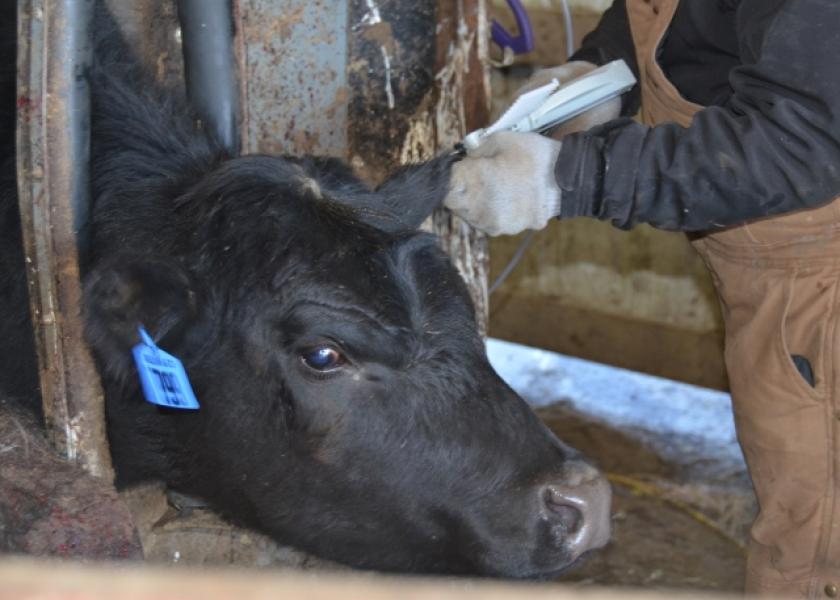Beef Cattle Implant Changes: What You Need to Know

While over-the-counter livestock antibiotics are set to require a prescription as of June 11, there will also be updates to Food and Drug Administration guidelines regarding growth-promoting implants and reimplantation during this time.
Sandy Stuttgen, DVM, senior outreach specialist and Taylor County Extension agriculture educator with the University of Wisconsin Extension, said the FDA approved several steroid hormone implants for use in growing and finishing beef cattle, confirming safety of use in all production phases with no withdrawl time prior to harvest, in the 1950s.
Since approval, implants have been used across all stages of production and have been found to greatly improve production.
"Utilization of implants in stocker cattle can increase average daily gain by 5-20%, improve feed efficiency by 5-15%, and improve lean tissue deposition by 5-12%,” says Connor Biehler and Hannah Greenwell of the University of Nebraska Extension.
While implants are labeled for sex, age or stage of production, until recently, implant labels did not include directions for reimplantation within the production stage for which they are intended, Stuttgen explains.
A letter from the FDA to the industry in May 2021 stated there will be “no changes to how [implants] may be used at this time,” however FDA recognized that the labeling for certain products may be unclear to the end user, regarding repeat implantation, and the agency initiated a process to work with drug sponsors to clarify the labeling of the affected beef cattle ear implant products, the article notes.
Since the letter’s release, FDA has confirmed the target date for implant label updates regarding reimplantation within a production phase is June 11, 2023.
Stuttgen explains, as of this deadline, unless a product is labeled for reimplantation, only one implant may be used per production phase.
Beef cattle will still be allowed to receive multiple implants across different stages of production, including each of the following phases defined by FDA GFI 191:
• Beef Calves:
1) Pre-ruminant or ruminant beef calves nursing their dams from birth until 2 months of age
2) Ruminating and nursing their dams from 2 months of age to weaning
• Growing beef steers or heifers on pasture (stocker, feeder or slaughter): weaned and maintained on pasture and receiving most of their diet from grazing
• Growing beef steers or heifers in a drylot: weaned and maintained in a dry lot and fed harvested forage (possibly with supplement)
• Growing beef steers or heifers fed in confinement for slaughter: weaned growing and finishing animals confined in group pens or grow yards and fed progressively high-energy diet ad libitum as their sole ration until slaughter
“Moving forward, some producers who use implants will need to make some changes to their implant programs,” says Bill Halfman with University of Wisconsin Extension Beef Outreach. “It is important to remember that having a functioning implant in the animal during the last days on feed is the one that will have the greatest return on investment. So, producers will need to take into consideration the approximate sale date of the cattle and the duration of the implant they intend to use to identify the best time to administer them.”
Dan Thomson, DVM, Ph.D., professor at Iowa State University and host of DocTalk, further discusses the upcoming FDA implant updates, the OTC antibiotic changes and what they mean for the beef industry.
As a good practice in administering any vaccine or implant, Stuttgen encourages producers read the product label to determine how the products should be best used in the operation.
Read More:
OTC Livestock Antibiotics Will Require Prescription June 11
What Antibiotics Will No Longer be Available OTC?
Implanted Stocker Cattle Could Improve Average Daily Gain by 20%
Implanting Nursing Calves
Successful Administration of Implant Begins With the Right Technique







